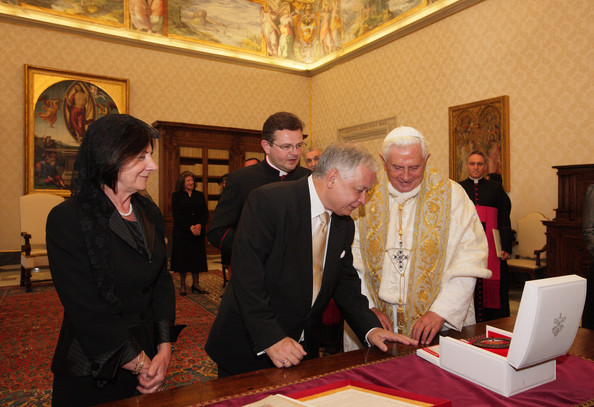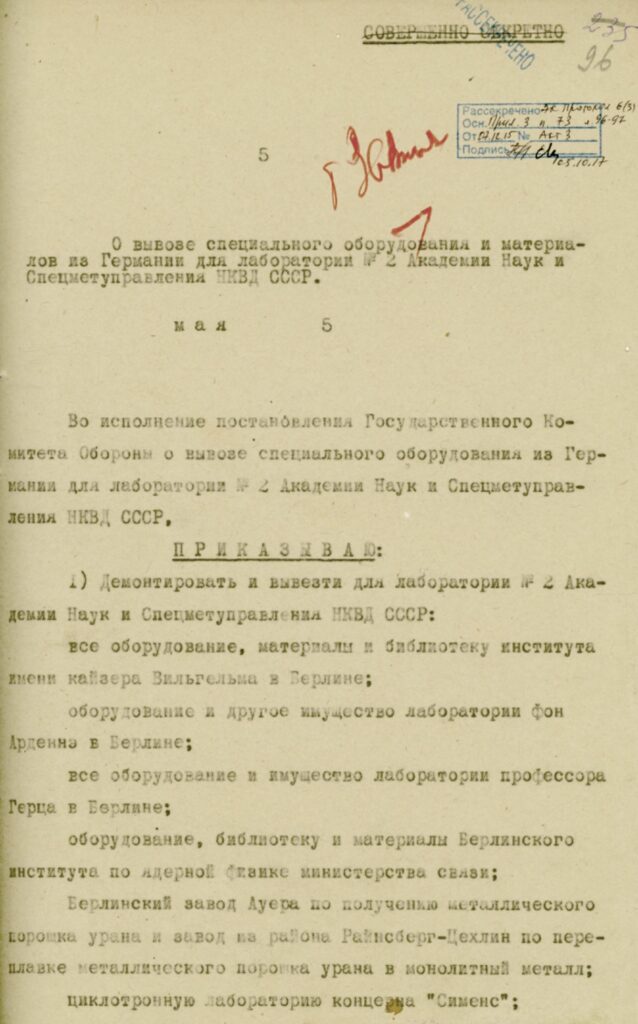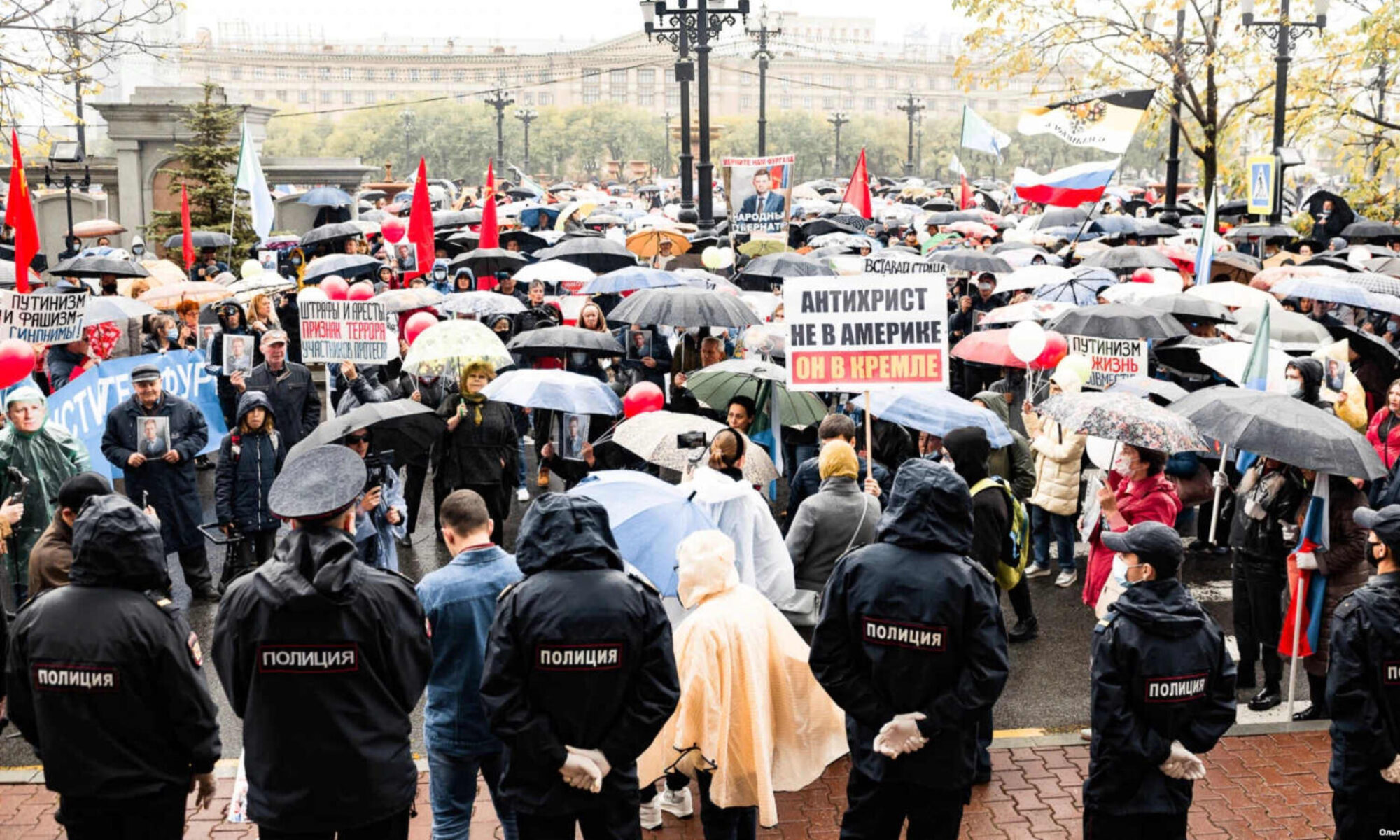In September, the European Parliament passed an official resolution recognizing both Soviet and Nazi culpability for the start of World War II in relation to the Molotov-Ribbentrop Pact, which included a “secret protocol” for the division of Poland. The resolution affirms that while Nazis have been held culpable for their role in WWII, the Soviets largely avoided such criticism and it is important to remember the tragic history of Europe so it is not repeated. This declaration was met with apparent anger and a disinformation campaign from Russia and even Putin himself.
Over the past few months the story has grown, with the Russians presently focused on the presumed anti-Semitism of the Polish ambassador to Nazi Germany as being the actual cause of WWII. This seems a game of rhetorical ‘whataboutism’. Russia’s position is essentially an illogical argument that Poland itself started WWII – by amplifying a potentially insignificant apocryphal story and ignoring all the other factual evidence to the contrary.
It should be obvious that Poland is in a very difficult position as Russia’s neighbor. Historically, I think this seems to be because like Russia, Poland is ethnically a ‘Slavic’ nation; however, as opposed to the Orthodoxy which is practiced by most Slavs (and has been the basis for many Russian civilizational and geopolitical ideas even during communism) Poland is predominately Catholic.

At times, Polish Catholics have controlled Russian territory, such as during the time of the Polish-Muscovite war which followed the earlier attempts of “False Dimitris” to claim the Russian throne for Poland. The Catholic Churches in Russia during the period were ethnically segregated and it seems Russians couldn’t join. This is one example from long ago, but perhaps a vivid one.
Today, and additionally with their tight integration into NATO, I think all of these features make Poland threatening to the ideologies of Russian nationalists and may serve as the basis for modern informational aggression of Russia towards Poland as represented in online conspiracy theories.
In addition, it is most difficult to overlook the historical Katyn massacre of 1940. It was signed by Stalin’s NKVD chief Lavrentiy Beria and authorized the mass extermination of many of Poland’s captured military officers. The massacre was committed during the period of the 1939-1941 pact between Stalin and Hitler. The massacre itself is named for the Katyn Forest, in Smolensk Russia where many of the graves were first found.

There have been a couple of reasons for my prior interest in the Molotov-Ribbentrop Pact as someone who is trying to understand modern disinformation through a historical lens.
The first of these is that much like today, it seems that Russia was playing both sides of global extremism to its benefit in the run-up to WWII. Take for example late 1930’s anti-Nazi figures like Orson Welles who had been drumming up propaganda directed at the Nazis – with Soviet espionage support – and who suddenly ceased operations at the time of the Molotov-Ribbentrop Pact. (This showed the influence Soviet propagandists (esp. Otto Katz) had on the anti-fascist movement and that it was ultimately just a Potemkin village of morality so to speak operated by the Communist Party.)
On the other hand, there are also many clues that the Russians not only influenced the anti-fascists but they may have influenced the Nazis too prior to the eruption of hostilities in Europe. Seemingly, much of the Nazi ideology came from ‘White Russian’ ideas. Take for example, the Protocols of Zion – a late 19th century / early 20th century Russian secret police forgery – a so-called anti-Semitic ‘pogrom weapon’.
The Protocols were spread by an Okhrana agent named Yuliana Glinka who was also associated with a spiritual movement called ‘Theosophy’. Theosophy and its founder Helena Blavatsky had been long-suspected of being tools of Tsarist influence by the British security services. It is notable that not only popular anti-Semitism practiced by the Nazis – but that the Swastika, root race theory, and ideas about ‘Aryans’ are largely derivative from Theosophy.
In addition, fascism itself was brought to Germany by White Russian emigres and the Gestapo modeled themselves on the Russian Cheka. It is my hypothesis that Nazi indulgence in Nostradamus prophecies is also likely an artifact of White Russian cultural influence on the Nazis.
In short it is clear that more than just the Molotov-Ribbentrop Pact must link Nazi ideology with Russian influence in the lead up to WWII. Even if this is a “White Russian” vs. “Red Russian” matter, it does not get enough attention given the very blatant influences on both sides.
The second matter which I have been acquainted with of relation to the legacy of Katyn and Russian:Polish relations is that of the April 10, 2010 crash of the Polish executive government in Smolensk Russia. That tragedy occurred as the Polish President Lech Kaczynski and his team were traveling to Smolensk to observe the anniversary of the Katyn massacre. The recently Russian-refurbished plane flown by the Poles crashed near a Russian air base as it attempted to land in dense fog.
Criminal investigations were launched against the Russians for the crash. There were many criticisms of poor forensic protocols, misidentified remains, missing property, etc. The crash seems to have proved an intelligence windfall for the Russians as well.
In addition, a vast number of conspiracy theories popped up online about the crash, including Nostradamus and Baba Vanga prophecies. Many Polish people believe in a conspiracy theory sense (although plausible) that Russia caused the crash. There’s no solid proof that Russia orchestrated the 2010 disaster (yet) but it is clear that the online conspiracy environment in April 2010 related to Poland and the Smolensk crash is very similar to other informationalized influence campaigns accepted to be run by Russia. It deserves further scrutiny in light of international openness to accepting Russian information aggression since 2014 (although of course I would posit this seems to have started as soon as Putin came to power).
I don’t think it really matters if the Polish ambassador to Nazi Germany was an anti-Semite, because even if he was -it was quite possibly the result of historical Russian promotion of anti-Semitism anyway which would have enabled him to be successful in that mission in the 1934 and onward period. But I should also say (and I don’t know a lot about this) there does not seem to be much solid evidence that ambassador Józef Lipski was actually anti-Semtic. The stories may be apocryphal.
I would say it is objective though that Russia apparently deeply disrespects Poland for various perceived affronts throughout history and as a Catholic Slavic nation which makes it generally incompatible with Russia’s grand designs for Orthodoxy and Eurasianism. Understanding the Molotov-Ribbentrop Pact as a Soviet strategic move and looking at how Russia apparently ‘played both sides’ in the run up to WWII, we may also see many parallels with today.
For example, if Putin sees the fall of the USSR as a great geopolitical tragedy, one might assume he ascribes some blame for it on Pope John Paul II, who was both Polish and Catholic. Putin’s mentor Yuri Andropov apparently had great concerns about John Paul II and there is good credible evidence to even suggest KGB-sponsored assassination attempts against him. Did this also make John Paul II and his legacy a target of disinformation in the Putin-era, during which Russian informational strategy seems set on global projection of ‘Orthodox Civilization’ via conspiracy theory? In the same vein that the Nazis adopted Nostradamus probably from White Russian influences, does its modern provenance in online conspiracy theories support ‘Tsarist’ ideologies? This is a vivid example, but I think the 2010 instance can actually fit similar contours when seeking to explain the disinformation. (Sadly maybe even the ARA San Juan disinformation from Argentina as well… the ship had a female officer of Jewish and Polish heritage and was the subject of numerous Russian conspiracy theories after it vanished.)
So yeah, it does seem that Russia is responsible for WWII. Who knows, maybe the two sided influence campaign shows they are “more responsible” in some way than even the apparent dupe Hitler. Maybe Hitler got wise to it in 1941.
In reflection, beyond just Molotov-Ribbentrop I think that Russian pogroms at the turn of the 20th century (the campaign apparently supported by The Protocols of Zion) drove a lot of Jewish people into the not-always-welcoming arms of the West. It stirred up a lot of hatred outside Russia towards Jews. Such feelings have been perennially revitalized in right-wing ruminations on the Bolsheviks (such as those thoughts that apparently occupied Hitler and many modern anti-Semites too). I honestly think the Russian policies on the Syrian Civil War do the same thing with Muslims in Europe. In this sense, modern Far-Right figures are indeed a lot like Hitlerites (but we should wonder to what extent Russia also cultivates opposition movements like antifa, Yellow Vests, etc. and even Muslim terrorism at the same time in order to move those masses like they may have moved Nazis).
In any case, it if we look back at history in light of current events, is pretty clear that Russia would gladly be responsible for trying to start World War III today – if they haven’t actually done so already. Poland shouldn’t suffer further. Poles are likely a tempting target for Russian influence and aggression because they are historically symbolic of antithesis to the nationalist state myths and ideologies being Catholic, Slavic, Eurasian, and Western all at once. They don’t fit Russia’s neat ideological nationalist models. Ultimately in the global neighborhood, they have a dangerous neighbor. The police need to be involved for everyone’s safety. The Polish people are on the front lines of the West – both informationally and militarily – up against Russia’s cultural aggression and we should defend them in order to avoid the mistakes of the past. Working together, we can do it, and hopefully lift Muscovy up as well from its dark ages mentality at the same time.
